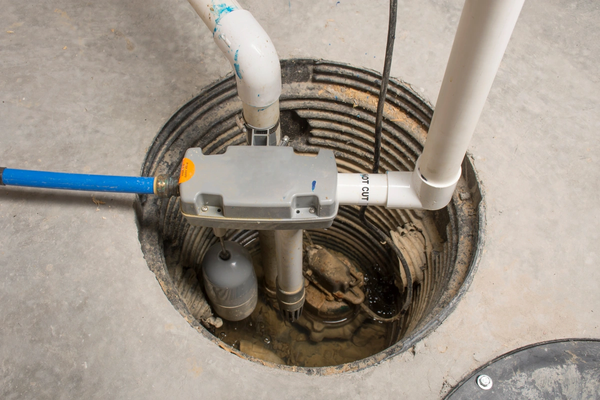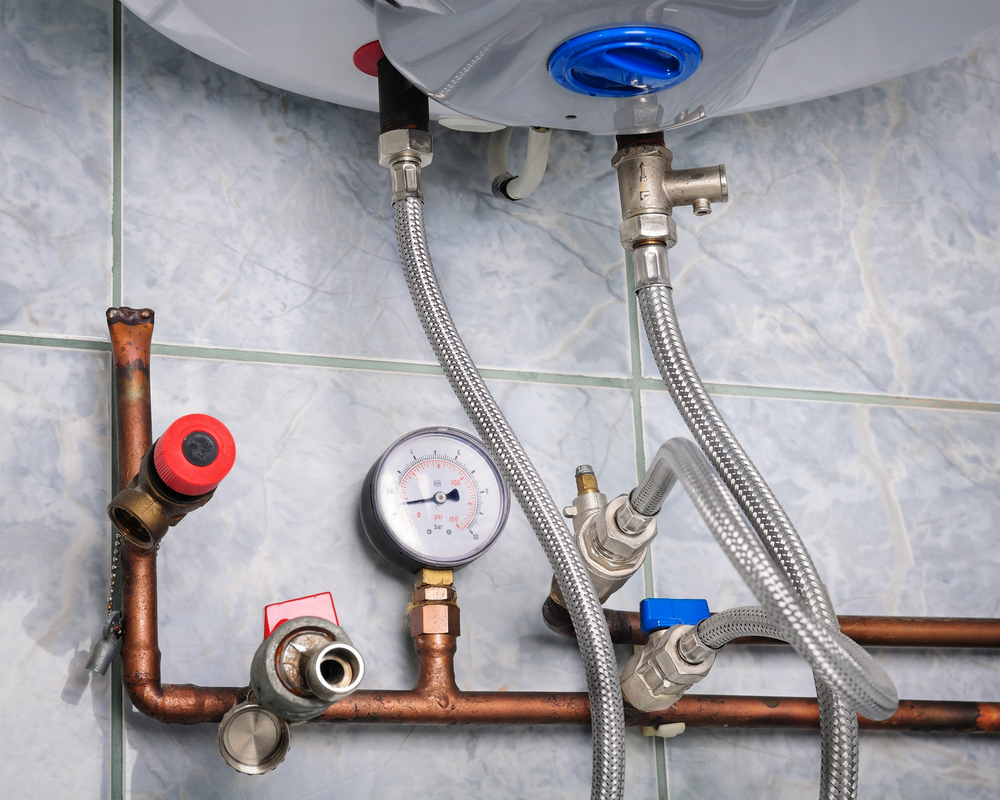An Guide to Dealing with Low Water Pressure in Your Home
An Guide to Dealing with Low Water Pressure in Your Home
Blog Article
Here below you can locate a good deal of good quality content with regards to Dealing with Low Water Pressure in Your Home.

Low water pressure in your house can be an irritating trouble, influencing everything from showering to washing meals. If you're experiencing weak water circulation, there are a number of feasible reasons and remedies to check out. In this guide, we'll review typical factors for low tide stress and functional actions to deal with the concern properly.
Intro to Low Tide Pressure
Low water stress happens when the circulation of water from your faucets, showers, and various other components is weak than typical. This can make daily jobs a lot more challenging and much less reliable. Recognizing the root causes of low tide stress is essential to locating the best remedy.
Usual Root Causes Of Low Tide Stress
Pipe Obstructions
In time, pipes can come to be blocked with natural resource, debris, or debris, restricting the circulation of water. This is a common concern in older homes with galvanized steel pipelines.
Corrosion
Rust within pipelines can lead to leakages and minimized water pressure. Rust buildup can tighten water flow, especially in aging plumbing systems.
Faulty Pressure Regulators
Stress regulatory authorities are in charge of keeping regular water stress in your house. If they malfunction, it can cause low tide pressure or unequal flow throughout the house.
Metropolitan Supply Of Water Issues
In some cases, the trouble lies outside your home. Community water supply issues, such as main line leaks or upkeep job, can temporarily reduce water stress in your area.
Exactly How to Identify Low Water Pressure
Examining Faucets and Fixtures
Start by examining the water stress at various faucets and components throughout your home. If the issue is separated to specific areas, it might show local issues.
Evaluating Pipes
Inspect visible pipes for indications of leakages, corrosion, or obstructions. Take note of any type of unusual audios, such as banging or rattling pipes, which might show problems within the plumbing system.
Consulting with a Plumber
If you're not able to determine the cause of low water pressure, consider working with a professional plumber to perform an extensive examination. They can recognize underlying issues and advise ideal remedies.
DIY Solutions to Fix Low Tide Pressure
Cleansing Aerators and Showerheads
Natural resources can build up in aerators and showerheads, lowering water flow. Remove and cleanse these components on a regular basis to enhance water stress.
Flushing Water Heater
Sediment build-up in the water heater can restrict circulation and reduce effectiveness. Flushing the container occasionally assists remove debris and maintain optimal performance.
Examining Stress Regulator
Make sure that the stress regulator is functioning correctly. Readjusting or replacing the regulator can assist restore proper water pressure throughout your home.
Cleaning Clogs in Pipes
For minor obstructions, try utilizing a plumbing snake or chemical drain cleaner to clear obstructions in pipes. Be cautious when using chemicals and follow safety and security standards.
When to Call a Professional Plumber
If do it yourself initiatives stop working to resolve the concern or if you suspect substantial plumbing troubles, it's finest to look for assistance from a certified plumber. They have the know-how and tools to resolve complicated concerns safely and successfully.
Safety Nets to Maintain Water Stress
Regular Upkeep
Schedule routine maintenance for your plumbing system to prevent concerns such as corrosion, leaks, and blockages. Resolving small issues early can help prevent more significant repair work in the future.
Mounting a Pressure Booster
Consider mounting a pressure booster pump to improve water stress in areas with continually reduced circulation. This can be particularly valuable for multi-story homes or residential properties with high-demand fixtures.
Surveillance Water Use
Bear in mind water use habits and avoid overtaxing the plumbing system. Easy modifications, such as shocking showers and washing tons, can assist keep ample water stress.
Conclusion
Handling low tide stress can be irritating, but identifying the underlying causes and applying proper services can recover optimal flow throughout your home. Whether it's cleaning aerators, evaluating pipes, or seeking advice from a plumber, taking aggressive steps can make certain a stable supply of water for your daily demands.
How to Fix Low Water Pressure In Your Home
Municipal Water Supply Issues
Scheduled maintenance, high demand, and water main breaks are all potential causes for low water pressure within a city or county’s water lines. While there’s not much you can do to personally fix a problem with your city or county’s water supply system, you can play a big role in documenting the issue and alerting those who can.
How to fix it:
Ask your neighbors if they are experiencing any issues with low water pressure. If multiple homes are affected, it’s likely related to the city’s water line.
Contact the local Water Authority to see if there is any maintenance taking place that might be affecting your supply. Also let them know of your specific issues. If other homeowners report the same issues, they’ll know that there could be a larger issue to look into.
Faulty Fixtures
A damaged or clogged shower head, faucet or appliance is the first thing we’d suggest checking, especially if low water pressure appears to be isolated to a specific area of your home.
How to fix it:
First, turn off the main water supply to your home.
Check the affected appliances for build-up or debris. In the case of a faucet, you can simply unscrew the aerator at the tip of the faucet. Showerheads should be fully detached from the water pipe.
While the appliances are detached, you may want to check the water supply to determine if the fixtures were in fact the issue.
To clean, soak the showerhead or aerator in vinegar and brush off any visible debris.
Reattach the fixtures and check the water pressure again. If it is still low, there is likely a deeper issue at hand, which can be determined by a professional plumber.
Pipe Obstructions
Mineral deposits, rust or other debris within water pipes can lead to blockages or corrosion over time.
How to fix it:
When you think of a clog, you probably think of a drain clog. While there are many DIY solutions to clearing a drain, clogs in a water pipe will almost always require the help of a professional plumber. A plumber will be able to locate the affected pipe and clean out any debris or mineral deposit buildup. In severe cases, the pipe may need to be replaced. Your plumber might also recommend a water softening system to remove the minerals from your home’s water supply that can contribute to pipe blockages over time.
Plumbing Leak
Undetected water line leaks can divert water away from your residential pipes, reducing the water pressure in your fixtures.
How to fix it:
Check your water meter by turning off all water sources and monitoring the meter for any movement, which could be a clear indicator of a potential leak.
Check all visible pipes for signs of leaking, including water stains, active dripping or damp spots around the pipe.
Inspect fixtures, including faucets and showerheads, for any drips.
Test the pressure but recording the pressure with the main water valve shut off. Leave off for a few hours and test again. A significant drop in pressure is a clear sign of a leak.
https://kiddcoplumbing.com/plumbing-blog/how-to-fix-low-water-pressure/

How to Fix Low Water Pressure In Your Home
Municipal Water Supply Issues
Scheduled maintenance, high demand, and water main breaks are all potential causes for low water pressure within a city or county’s water lines. While there’s not much you can do to personally fix a problem with your city or county’s water supply system, you can play a big role in documenting the issue and alerting those who can.
How to fix it:
Faulty Fixtures
A damaged or clogged shower head, faucet or appliance is the first thing we’d suggest checking, especially if low water pressure appears to be isolated to a specific area of your home.
How to fix it:
Pipe Obstructions
Mineral deposits, rust or other debris within water pipes can lead to blockages or corrosion over time.
How to fix it:
When you think of a clog, you probably think of a drain clog. While there are many DIY solutions to clearing a drain, clogs in a water pipe will almost always require the help of a professional plumber. A plumber will be able to locate the affected pipe and clean out any debris or mineral deposit buildup. In severe cases, the pipe may need to be replaced. Your plumber might also recommend a water softening system to remove the minerals from your home’s water supply that can contribute to pipe blockages over time.
Plumbing Leak
Undetected water line leaks can divert water away from your residential pipes, reducing the water pressure in your fixtures.
How to fix it:
https://kiddcoplumbing.com/plumbing-blog/how-to-fix-low-water-pressure/
Do you enjoy more info about 9 Reasons for Low Water Pressure in Your House? Place a short review down the page. We will be delighted to see your thinking about this review. In hopes that you come back again in the future. If you appreciated our page please make sure you remember to pass it around. We recognize the value of your readership.
Call Report this page